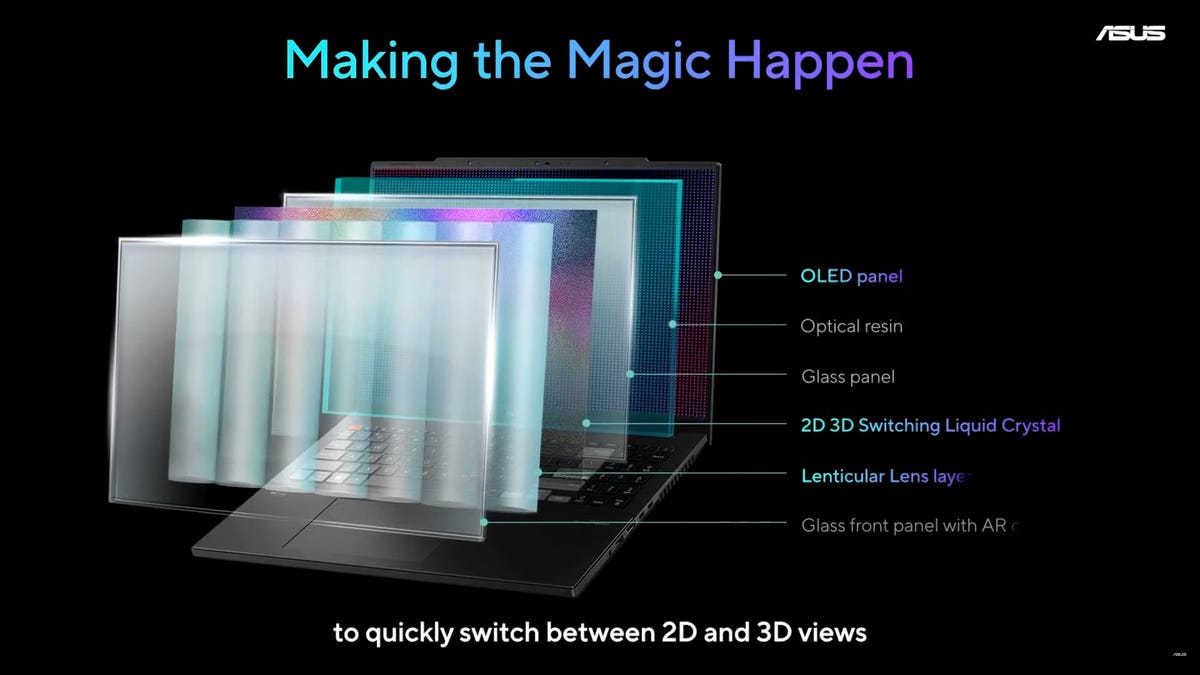A couple of years ago, Acer added a laptop with a Spatial Labs glasses-free 3D screen in its Concept D mobile workstation line, and has since been quietly chugging away with the tech. The company subsequently incorporated the tech into gaming laptops.
At CES on Wednesday, Asus announced its own 3D panel for a couple of creator-focused laptops. But Asus’s difference is OLED. It says OLED’s high contrast and fast pixel response time promise less crosstalk and ghosting — in other words, visibly crisper 3D rendering — than with the IPS panels used by Acer. It’s designed to work with all common 3D formats, though the experience may vary depending upon content.
Read more: CES 2023 Must-See Highlights: A Sliding Foldable, Stunning TVs, Impossibly Thin Laptops
The panel itself is the 3.2K 120Hz model Asus has been using in some of its current models, but the 3D is generated via a layer of lenticular lenses bonded to it — to refract the emitted light to different eyes — and Acer combines it with eye tracking to figure out how to orient the object.

Asus/screenshot by Lori Grunin/CNET
In the early model that we got a chance to see, the eye tracking didn’t work quite as smoothly as it needs to, taking too long to lock, but Asus doesn’t expect to release either of the models that will have it — the ProArt Studiobook 16 3D OLED or the Vivobook Pro 16X 3D OLED — until at least the second quarter of 2023. The company did tell us that the screen adds to the cost of the Vivobook Pro 16X OLED by about $500. Asus is also working on the ability to track multiple viewers.


